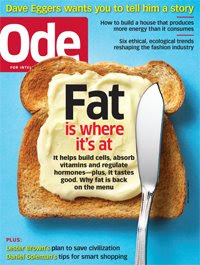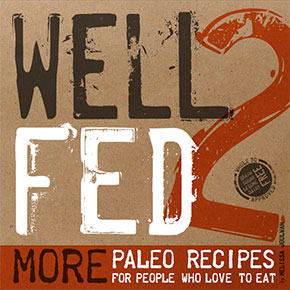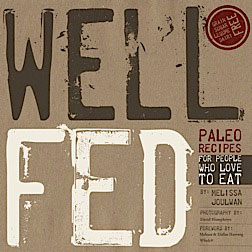Last summer, I told Farmer Chuck — the king of everything delicious at our CSA Sunrise Farm — that the onions we'd been getting in our basket were...
Read MoreWhere It’s At: I Got Two Avocados and a Salmon Steak
I’m lolling on the beach in Playa del Carmen (where “lolling” equals starting each day with a run or CrossFit workout, then swimming, reading, and having adventures with Dave). But I couldn’t leave you stranded, so…
* * * * * * * * * * *
[Sing the title of this post to the tune of Beck’s “Where It’s At” for the full effect.]
Ode Magazine, a print and online mag “about positive news, about the people and ideas that are changing our world for the better, recently published an article called “Fat Is Where It’s At.” I strongly encourage you to read the whole article. It provides an excellent survey of decades of research into the relationship between fat and our health — and the way attitudes have shifted over the years.
I strongly encourage you to read the whole article. It provides an excellent survey of decades of research into the relationship between fat and our health — and the way attitudes have shifted over the years.
Some of the excerpts I found most striking are below:
For more than three decades, we’ve been told that fatty foods are deadly, to blame for a full menu of health hazards, from heart disease to obesity to cancer. Regularly described as the nutritional equivalent of cigarettes, fat has been the target of public-service campaigns and municipal bans aimed at keeping us slender and healthy. But a growing body of international research suggests our obsessive fear of fat may be misplaced. A high-fat diet won’t necessarily make us sick or fat; a low-fat diet may not make us healthy or slim.
Not only that, but our myopic aversion to fat may be doing more damage than an order of steak frites ever could. In our effort to avoid the demon lipids at all costs, we’re forever tinkering with our diets—substituting Snackwells for Oreos, dry toast and a glass of orange juice for a plate of bacon and eggs—in hopes it will keep us skinny almost effortlessly. But these dietary contortions often have unintended consequences. They inspire us to eat more food, for starters. And the food we eat more of? It contains more chemicals, starches and sugar. These ingredients “are more harmful than the much-feared animal fats,” says Irina Baumbach, secretary of the Association for Nutritional Medicine and Dietetics in Aachen, Germany.
Increasingly, researchers and nutrition experts are starting to come around. “I have been in this business for 35 years and I have never been one of those who maintain that fat is bad,” says Daan Kromhout, a professor of public health at Wageningen University in the Netherlands. “We don’t even know whether the two things—fat and [being] overweight—have anything to do with each other. The fat issue is much more complicated than it was once thought to be.” Moreover, Kromhout says, stating only the amount of fat in a food product is misleading, since “you have to specify what type of fat is included—saturated, unsaturated, trans-fat—because if you don’t, people will just cut down on all fats, the good ones included.”
As for the connection between fatty foods and weight, it’s controversial as well. Obesity was never the target of Congress’ efforts, although the low-fat recommendations were instituted to help people manage their weight. They haven’t. Since the guidelines were adopted, Americans have indisputably gotten fatter. “In the early 1990s, we ate low-fat everything and we didn’t get thinner,” says Alice Lichtenstein, a professor of nutrition science and policy at Tufts University in Massachusetts. “There’s your proof.”
Overall, as Americans replaced regular foods with low-fat products, nutrition sometimes suffered. One study found that women who used fat-modified products weren’t getting enough vitamin E or zinc, prompting the authors to recommend “additional dietary guidance.”
Study after study found that people who said they ate low-fat diets didn’t eat any less than people who kept eating fat. The government’s message had perhaps worked too well. People thought fat, not quantity or quality of food, was the villain. The Food Marketing Institute in Virginia reported that buying food products labeled “low-fat” was the most common way people improved their diets.
According to Pierre Chandon and Brian Wansink, marketing professors at INSEAD in France and New York’s Cornell University respectively, subsequent studies showed that “low-fat labels lead all consumers—particularly those who are overweight—to overeat snack foods.” After all, a reduced-fat version of a cookie often has just as many calories as its “original” counterpart (not to mention more sugar).
More Like This...
I was working on updating a classic American recipe for my Paleo Magazine column this weekend and realized I had no idea how to properly prepare...
Read More









I love this article! The whole low-fat diet fad was a complete disaster. Not only do you lose out on important nutrients but your skin, hair and nails get dull & brittle. Fat is good!!